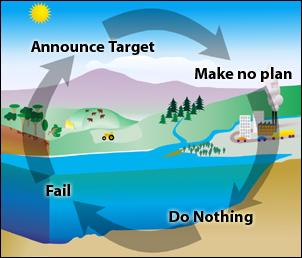Last month, Transport Minister Michael Wood was
forced to resign after deliberately and repeatedly concealing his pecuniary interests. There's no suggestion that they ever influenced his decision-making, but in Aotearoa we're rightly suspicious of politicians being in a position to profit from public office, and have no tolerance for politicians who refuse to comply with the basic safeguards against it. Meanwhile, in Britain, Wood's crime would have been
both legal and normal:
More than 50 MPs have owned stakes in publicly listed companies that raise questions about possible conflicts of interest and that until now have been in effect secret, the Guardian can reveal.
Parliamentary rules mean MPs’ shareholdings, including ones that were held by the former prime minister Theresa May and the former education secretary Gavin Williamson, do not need to be publicly disclosed in parliamentary registers. But as a result voters are left in the dark about some of the financial interests of their elected representatives.
[...]
Almost all of the holdings found are not strictly required to be publicly declared under current transparency requirements. Parliamentary rules, unchanged since 2015, require MPs to register holdings they have in a single company when they own more than 15% of its shares or when their shares in it are worth more than £70,000.
That declaration threshold is
around 80% of a backbench MP's salary - a ludicrously high amount. Meanwhile, in Aotearoa, there's no threshold - MPs are required to declare every company in which they have a pecuniary interest (though not, weirdly, its value). And that seems much safer. Allowing substantial financial interests - and
over twice the UK median income is "substantial" to anyone who isn't a member of Britain's out-of-touch political elite - to remain secret is simply a recipe for corruption. And while UK MP's might argue that it's "within the rules", that's utterly unconvincing, given that they wrote those rules to suit themselves.
Westminster desperately needs reform to force disclosure, and ultimately divestment, of these corrupt financial interests. And until they do, UKanians are entitled to regard it as a corrupt sewer of self-serving pigs, perpetually ripping off the public to feather their own nests.
As for Aotearoa, the Guardian article mentions that the US requires its politicians to disclose share market transactions, to prevent insider-trading. That seems like it would be a useful addition to our system. Better to be safe than sorry, and if politicians don't want their financial affairs scrutinised, they're not really suitable for public life.
